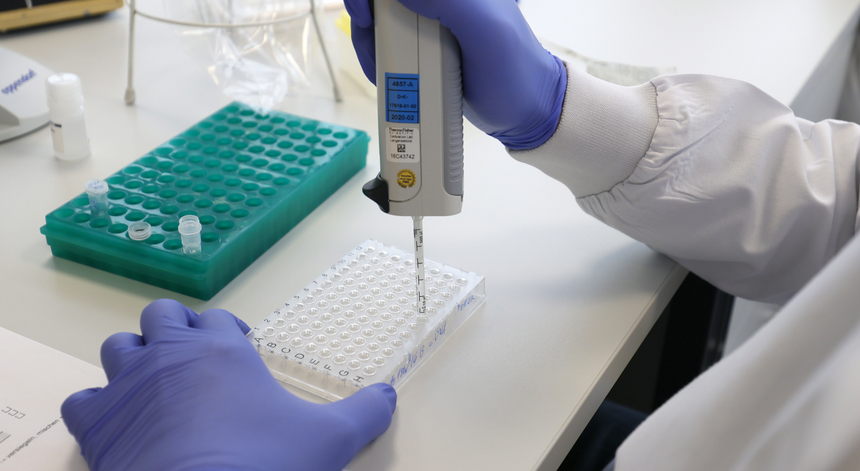The English variant, first detected in September 2020 in the British county of Kent, has now reached at least 50 countries and may spread further. This new strain has led to an increase in cases of infection and, consequently, hospital admissions and deaths, despite the fact that the country is in confinement and under tight restrictions.
In October 2020, a new wave of Covid-19 began in South Africa, mainly affecting the province of Eastern Cape, whose infection rate was much higher than in the rest of the country. The researchers quickly discovered that it was a new strain.
More recently, Another variant of Sars-Cov-2 was identified in Manaus, Brazil, when the number of cases rose exponentially, hospitals were overcrowded and without oxygen for the most severely ill.
These new, more contagious variants, were one of the main causes that led to the increase in cases and the rupture of health systems in several countries, including Europe. And the trend is that other mutations will continue to emerge as long as the virus is in circulation.
De facto, viruses can mutate as they replicate after infecting a person. But the question is: how do experts discover these mutations?
Researchers have been analyzing samples of the virus, taken from infected people, to try to find or identify mutations, using a process called genetic sequencing.
Over 500,000 genomes of the coronavirus that causes Covid-19 have been sequenced worldwide. By sequencing virus samples over time, scientists can discover recurring changes or mutations in its genome.
–
“If we don’t know these things, we act blindly”, Sara Vetter, director of the Minnesota Department of Health, told the Associated Press.
Most mutations do not have major consequences, but others can make a virus more contagious, deadly or even resistant to vaccines and treatments.
Scientific community concerned with three new variants
Researchers are mainly concerned with the three variants first detected in the UK, South Africa and Brazil, as they appear to be more contagious and have spread more quickly.
So far everything indicates that vaccines that are already available and in use in several countries continue to be effective against the Sars-Cov-2 variants, although it has been concluded that this effectiveness may be more reduced against the South African strain.
“The more people are infected in a population, the more likely a new variant to appear”, explained to BBC microbiologist Ana Paula Fernandes, researcher at the Vaccines and Diagnostics Technology Center at the Federal University of Minas Gerais (UFMG). “Without containment measures and without broad vaccine coverage, a variant may emerge that will completely defraud vaccines. That is a concern”.
–
The leader of the UK’s genetic surveillance program, Sharon Peacock, also said that the coronavirus variant found for the first time in England will acquire mutations that could reduce the effectiveness of current vaccines.
“It is inevitable that the virus continues to mutate because it is nature, it is evolution. What is worrying is that (B) 117, the variant that we have been circulating for weeks or months, is starting to acquire new mutations, which can affect how we approach the virus in terms of immunity and the effectiveness of vaccines “, said Sharon Peacock, director of the Covid-19 Genomics UK (COG-UK) Consortium.
–
The Genomics UK Consortium for Covid-19 is made up of a network of laboratories and public health agencies that is currently analyzing about 30,000 positive tests per day, sequencing the virus genome in thousands of tests to identify mutations and potential new variants.
In the past few weeks, British health authorities have identified dozens of cases in Bristol, in the south of England, and in Liverpool, in the north, with different mutations that are of concern and are already being investigated.
–
Analysis of tests on infected people in Bristol resulted in in the identification of a mutation type E484K, which affects the way the virus adheres to people’s cells, also found in variant B1351, detected in South Africa, and variant B1128, detected in Brazil – this mutation allows the coronavirus to escape the developed antibodies , both for vaccines and for a previous infection.
Last week, the team of researchers at the University of Oxford who developed the vaccine against covid-19 with the pharmaceutical company AstraZeneca confirmed that it is effective against variant B117, from the United Kingdom, but less effective against variant B1351, from Africa southern.
According to Peacock, “it is worrying that (B) 117, which is more transmissible and has spread across the country, is now mutating and developing this new mutation that could threaten vaccination”. Furthermore, being more contagious, this strain “spread across the country and will probably spread across the world”, but it remains to be seen whether it is more deadly or whether the increase in the number of deaths is due to its greater transmissibility.
–
This Thursday, however, the pharmaceutical company AstraZeneca announced that the development and production of an effective vaccine against the new variants of covid-19 can take between six to nine months.
– .


